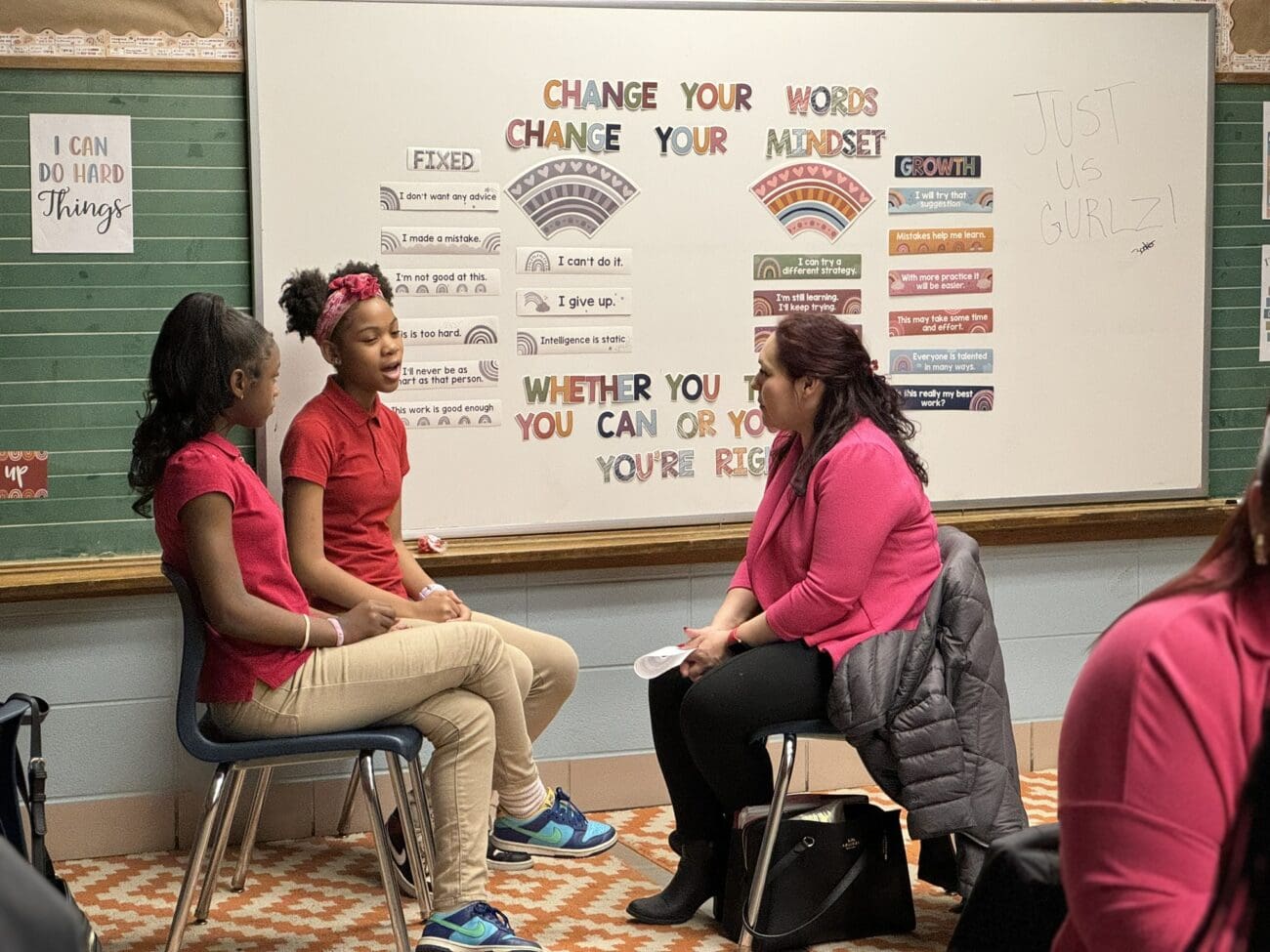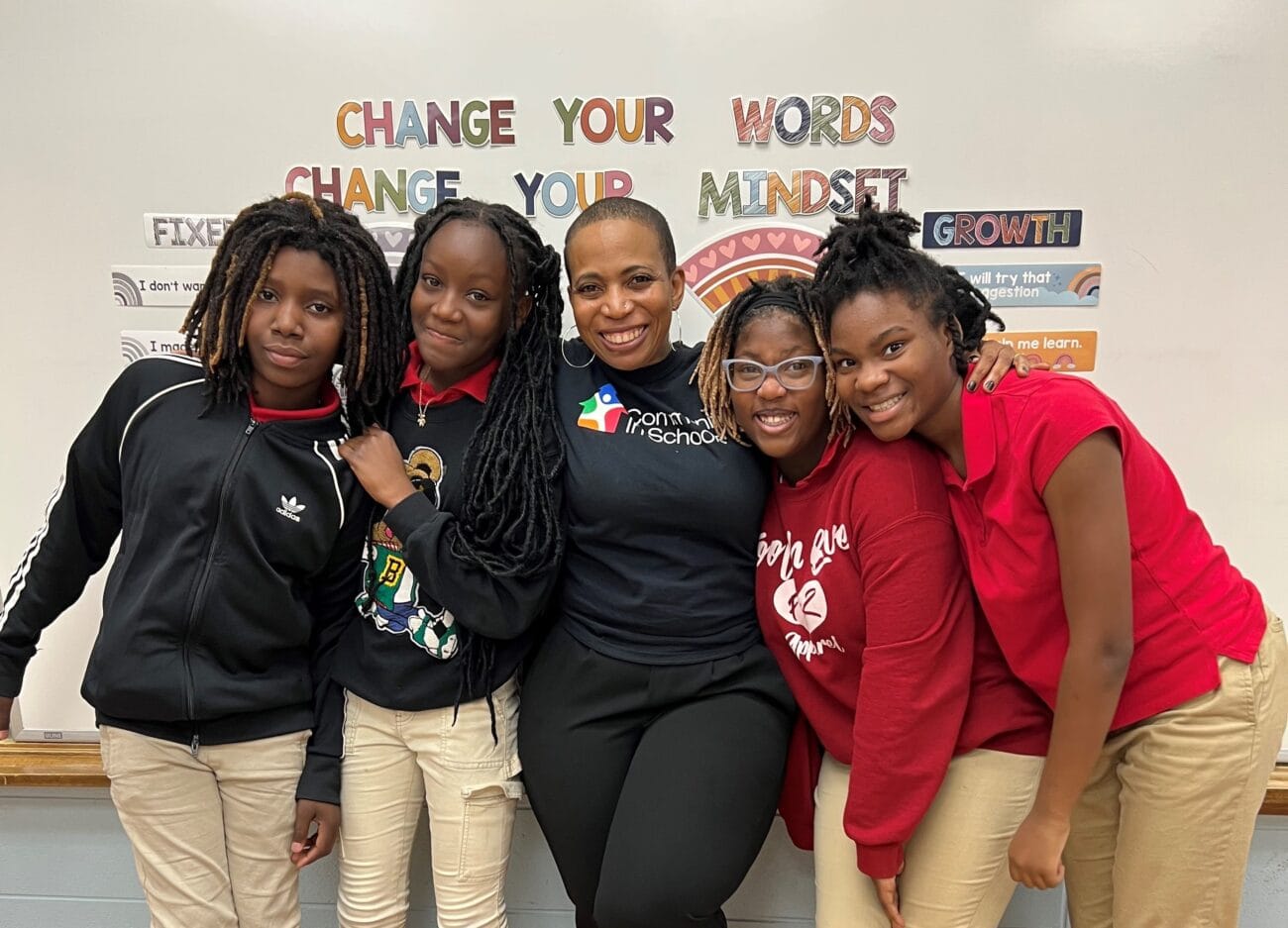In order to provide holistic support to today’s students, practitioners and other caring adults need to address their mental health needs, in addition to their social, emotional, and physical needs. More importantly, adults who works directly with students need to be able to recognize when they are experiencing a mental health crisis.
Our school-based team at Communities In Schools (CIS) of Chicago is trained in just this — identifying and responding to a student in active crisis. And now our team is offering this training — aptly named Mental Health First Aid — to school staff, teachers, community partners, and parents so that together, we can reverse the disturbing trend around self-harm among young people. Suicide is currently the second-leading cause of death for individuals ages 10 to 34.
CIS of Chicago Clinical Director and COO, Dr. Judith Allen, leads our organization’s efforts in providing Mental Health First Aid training. This March, she joined WBEZ’s Sasha-Ann Simons for a discussion on how parents and teachers can recognize the warning signs of a mental health crisis, whether at home, at school, or even through the digital screen in remote learning.

COVID-19 exacerbated the mental health crisis for young people with school shut-downs, Dr. Allen said, and at CIS of Chicago, we began to see some students disconnect from each other last summer. Our school-based team is staying in touch with students virtually, and when they didn’t show up for class or group work on Google Meets and other online platforms, we started to worry. Dr. Allen told WBEZ that children process events, such as the pandemic, differently from adults, so we need to pay close attention to specific changes in their behavior.
Has the child stopped participating in activities that they normally love, like watching a TV show or playing video games? Are they sleeping more? Are they lashing out? “Normal” behavior is different for every child, but we need to watch out for pendulum swings in their behavior. If a child is withdrawing from their friends and family, expressing feelings of hopelessness, or caught in a cycle of negative thought, the adult should be honest with the child about what they are noticing.
“We try so hard to protect them from what’s going on in the world today, and part of it is acknowledging what they’re feeling,” Dr. Allen said. “I think as parents sometimes we can be very dismissive of kids and what they’re going through.” Ask them directly — how are you feeling? Are you feeling like there is no hope? Even getting comfortable enough to say — are you thinking about hurting yourself?
Dr. Allen said that research shows that kids want us to be very direct in asking them questions. As adults, we often try to put on a brave face and exhibit strength for our children, but kids respond well when adults reveal that they have worries, concerns, and vulnerabilities. “The best way to speak to them is to be honest and tell them that you’re worried and tell them why you’re worried. Tell them what you’re seeing,” Dr. Allen said. This directness and honesty reveals to the child that the adult is paying attention to them.
Dr. Allen then suggests that the adult invites the child into the conversation. After saying here’s what I’m seeing and here’s what I think we should do, the adult can ask — what do you think? — especially for teenagers and older adolescents. Together, the adult and the young person can work on a plan that creates a sense of hope for them and focuses on the future.
Listen to the full recording of Dr. Allen’s interview with WBEZ here.
Communities In Schools of Chicago is a certified National Office of Behavioral Health Mental Health First Aid facilitation site. The program is supported through a generous Innovation Grant from the I.A. O’Shaughnessy Foundation. CIS of Chicago offers Mental Health First Aid certification trainings to a wide array of caring adults to help create a safety net around the lives of children and protect them from harm that stems from mental health challenges. These trainings have been adapted to online platforms.




